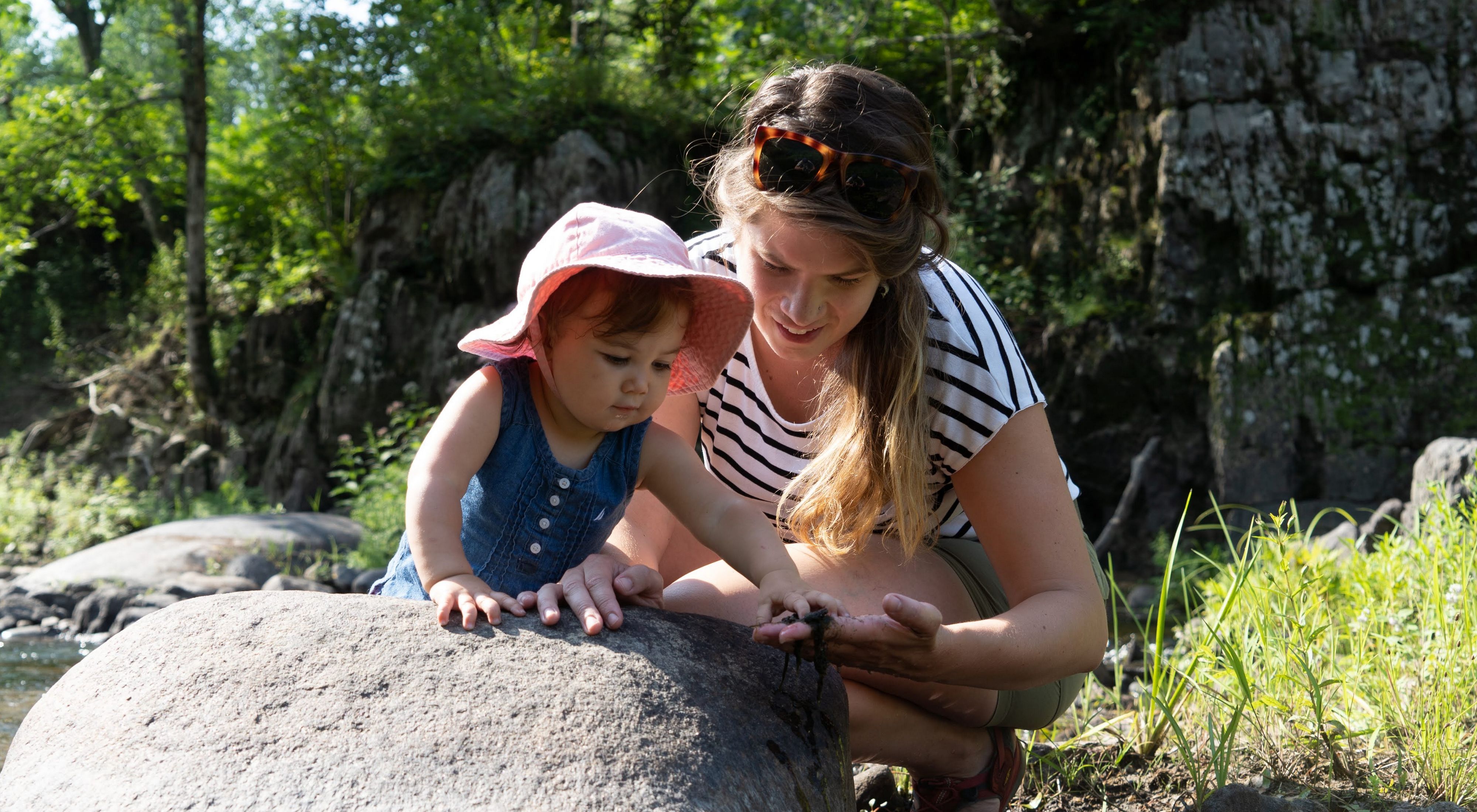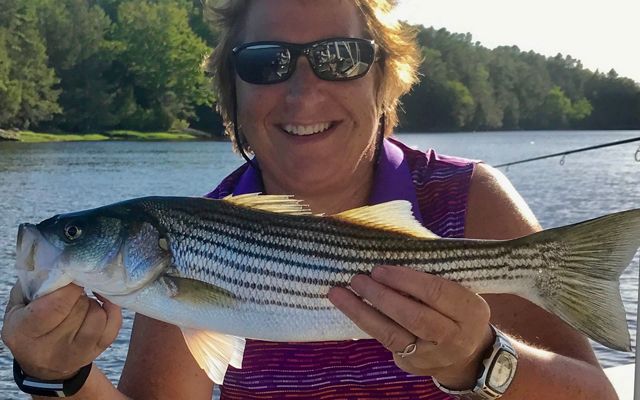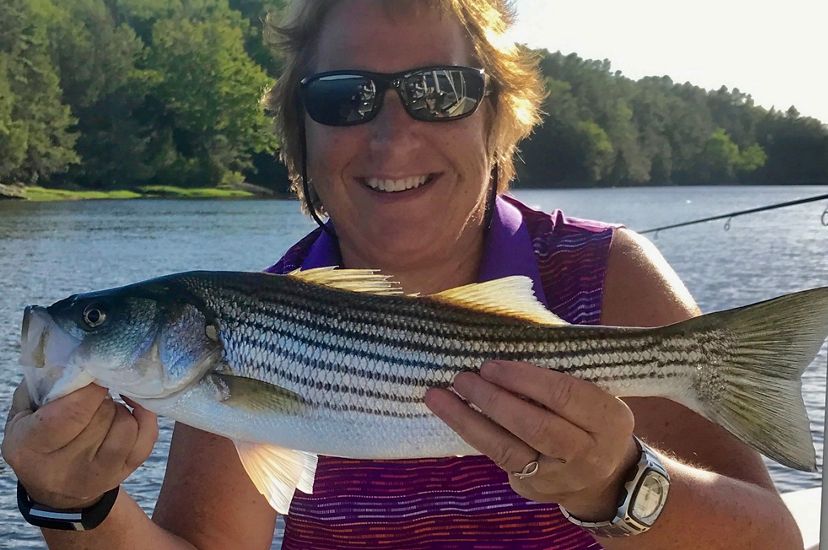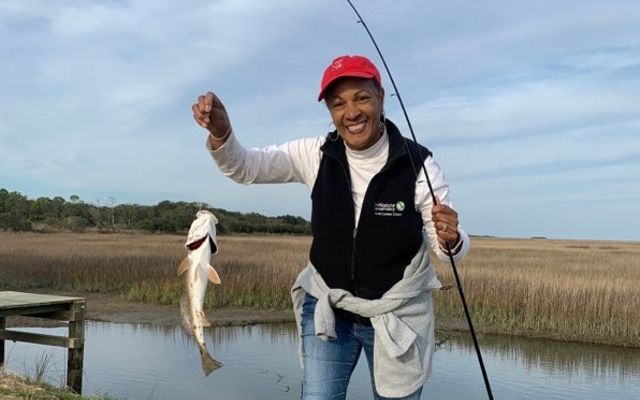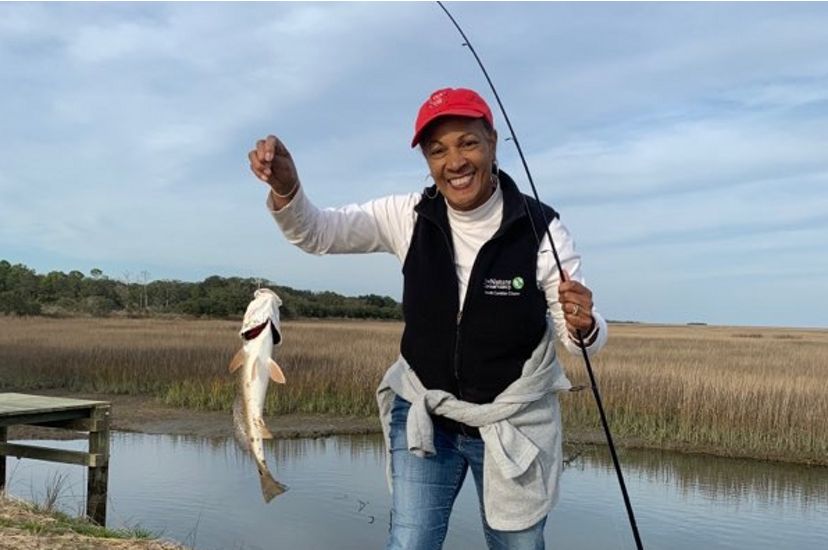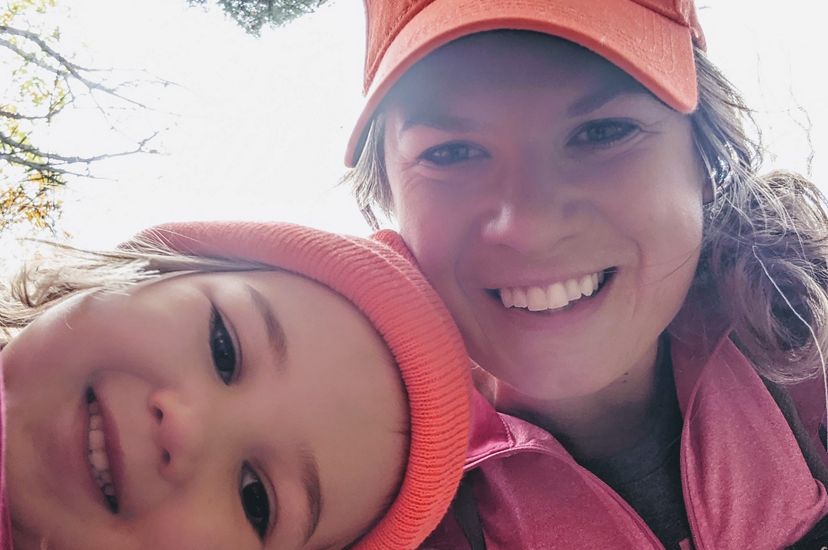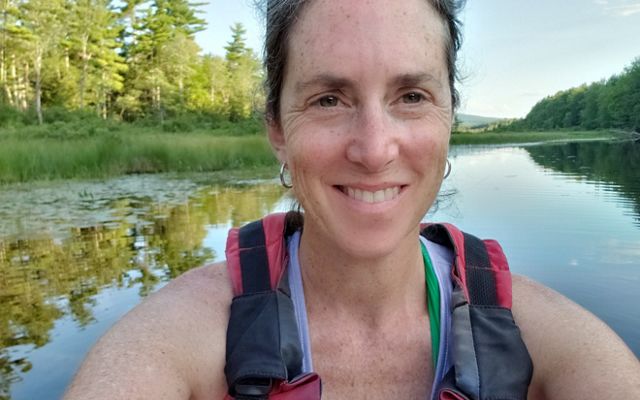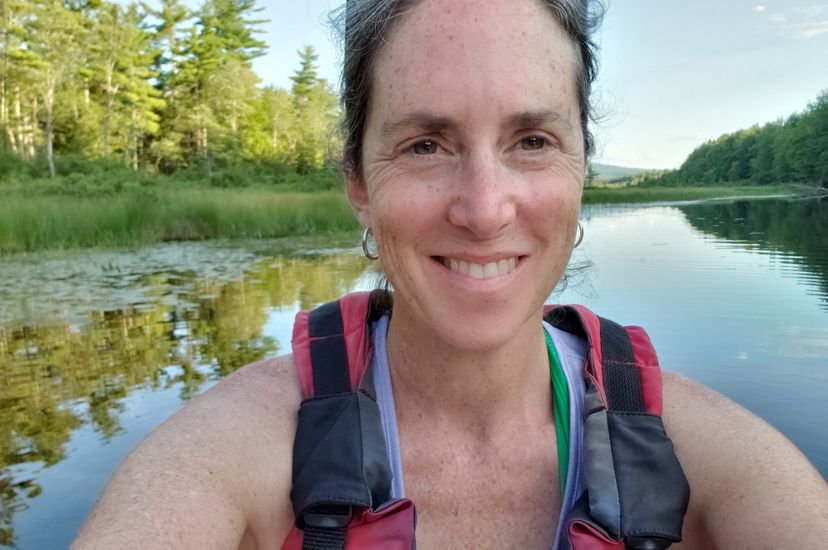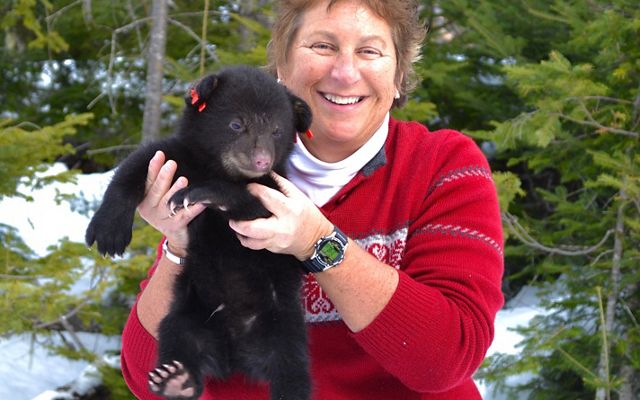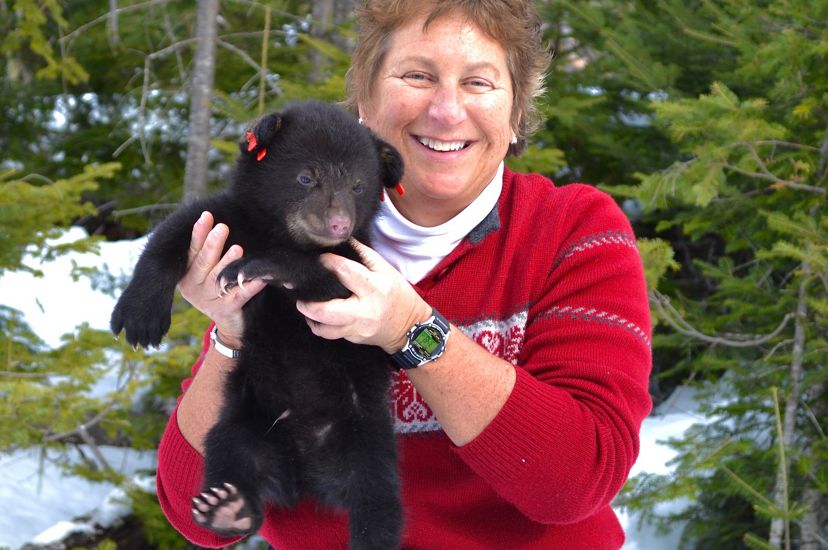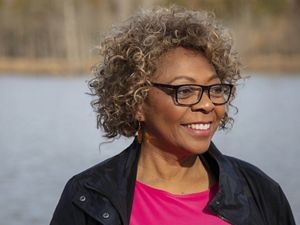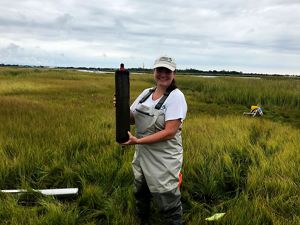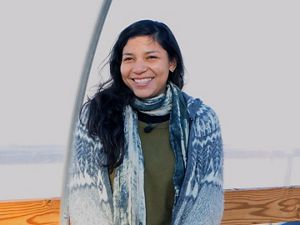We Can’t Save the Planet Without Women
Women have climbed uphill to contribute their science. We need to make them more visible.
Stories like this delivered monthly.
Get the latest updates from conservation work near you and around the world.
Send Me EmailsSomeday, this article won’t have to be written. Someday, projects won't need to be highlighted specifically because women are leading them. Someday, we will get to the point where we won’t have to ask what it’s like being a woman working alone in nature or the only woman in a boardroom. Someday, we will have greater gender equity in conservation.
To get to that day, it is important we elevate the women doing amazing conservation work so that other women will realize, “I can do that, too.”
The Nature Conservancy has example after example of women rising above barriers—which is especially incredible given that the global pandemic disproportionately impacts women—to do what it takes in the name of conservation:
- The woman who hiked stormy mountains alone for weeks to collect pine needles for genetic testing.
- The women who practically lived underwater for days to repair coral reefs.
- The woman who built her own equipment to more efficiently restore forests.
- All of the women who, for two full years now, have managed their work from makeshift home offices, while sometimes caring for their sick family members, teaching their children, and trying to keep loved ones healthy and sane.
TNC is earnestly working towards a more equitable future that welcomes and promotes women and other underrepresented groups. Like any large organization, we may stumble along the way. But we’re proud to have hired our first female CEO, first female Chief Scientist, and the roughly 40% of our directors and issue experts who are women.
We recognize that, often, when gender is highlighted it's typically to help advance specific conservation goals. We choose to discuss the science of conservation and highlight our brilliant scientists regardless of gender. Nevertheless, we are proud that many of our scientists identify as female, and that they bring their own valuable and diverse perspectives to our work.
A 30-year chain of mentoring uplifts generations of women in science
“I don’t get the sense that younger women are as conscious of their gender in the workplace as I needed to be 30 years ago,” says Samantha Horn, Maine’s Director of Science. “But the transition from outright prohibition of women in science, to hazing, to women being seen as exceptions, to being accepted as normal took a century.”
Horn is part of what she calls a chain of mentoring: recognizing the perseverance of the women who came before her and helping to advance the women who come after her. She remembers hearing about the awful treatment her mentors had to put up with simply for being a woman in science. Like being told to their faces, “you’re a woman, you’re not allowed to have this job.”
One of her mentors, Sandy Ritchie, never had a mentor who was a woman. When she started as a biologist with the Maine Department of Inland Fisheries and Wildlife in the 1980s, Ritchie was one of only two women. Over her 31-year career she learned to navigate gender-based hiring and promotion practices (including turning down a promotion that she learned was given not for merit, but for gender), comments and actions from male biologists that would now be recognized as sexual harassment, and worked up to a senior level position, paving a path for Horn and other women to follow.
Too dangerous for women?
Samantha Horn shares the questions she faced early in her science career.
Read her storyHorn is proud of her mentor for handling the comments and treatment with strength and grace, and appreciates that she persevered for the next generation. And while she feels lucky she didn’t have to go through some of those same challenges, it still wasn’t smooth sailing for her. Horn believes the next evolution is that both men and women will feel like it’s completely normal for a woman to be a scientist, not that it’s a new challenge or that a woman who is a scientist is special.
Horn, in turn, mentors Molly Payne Wynne, the Freshwater Program Director for TNC in Maine. Payne Wynne says it can be challenging to show up as your full self in a room full of men with preconceived notions about women in science. “Women are still outnumbered in fisheries meetings, but it’s getting better,” she says.
Payne Wynne believes young women and girls need to see women in science positions so they will think, “I, too, can be a scientist.” She wants her young daughter to know she can be anything she wants to be. “I pay attention to books and movies that show women in traditionally male jobs,” she says. “I want her to know that ‘scientist’ or ‘forester’ are inclusive of women.”
Back when she was starting out, Ritchie never had the goal of breaking into a male-dominated profession. She just loved the work and always knew that’s what she wanted to do. That said, she believes in the power of hiring for diversity.
“I think in the beginning some men were concerned whether women could physically do the job,” she says. “Working alone in remote areas, in adverse weather conditions, and handling heavy equipment and the occasional unwelcome moose was all part of the job. As more women were hired, we proved that what we may have lacked in physical strength we made up for with ingenuity and perseverance."
Quote
“You’re a woman, you’re not allowed to have this job.”
Today, Payne Wynne uses social media to connect with an extensive support network of women in fisheries all across the world. In these online groups, women can get help with everything from navigating sexual harassment in the workplace to finding wetsuits and other field gear that’s made for women’s bodies.
“I think it’s very different for this generation of women scientists compared to previous generations,” she says. “These groups help me navigate and embrace what it means to be a woman in my job.”
"We need more chairs around the table" to advance conservation
This visible representation is especially important for Indigenous women and women of color. The global conservation community has been historically dominated by mostly white, wealthy men. TNC has not escaped this characterization, nor has it always been a haven for all women. Though we’re learning and making progress, we’re not there yet: most of the stories shared here are from white women in the United States.
TNC knows we cannot achieve conservation success without a diversity of women from around the world. We cannot protect the most vulnerable and valuable lands and waters or slow climate change without women in positions of power and out in the field doing the science.
Quote: Dale Threatt-Taylor
We’re not always going to be in these chairs, and we need women to come along after us.
There's a gender gap in science publishing at TNC
The gap is even bigger for women in the Global South.
How many women publish science papers“We need more chairs around the table,” says Dale Threatt-Taylor, State Director for The Nature Conservancy South Carolina, and TNC’s first Black state director. “It’s going to be a much better discussion with everyone at the table.”
Dale has been a visible Black woman in conservation for much of her 25-year career. Raised to be independent, she says with a big smile, “I’m all Dale all the time. I can do anything!”
There’s no separating Dale’s feminine self from her conservationist self. She calls herself “equally effective in boots or heels”, both of which sometimes need spurs to get things done.
Noting the tendency of women to not apply for jobs if they don’t meet or exceed every listed qualification, she wants women to understand they don’t have to be the best of the best or think they’ll be pushing a man out of a chair.
“I encourage young professionals to at least be in the room where it happens,” she says, singing the last few words in a nod to the musical Hamilton. “If people can see me sitting in a chair, they might also see that there are bigger chairs. But we’re not always going to be in these chairs, and we need women to come along after us. You can be mothers and wives and still help life on this planet.”
How intersectional feminism and public policy join forces for conservation
A person’s perspective on conservation and development can vary greatly depending on what social groups they belong to (such as gender or sexuality, income, physical ability, geographical location, race or ethnicity). Our conservation work requires this intersectional lens, according to Sarah Gammage, Director of Public Policy and Governmental Relations for TNC in Latin America. Crucially, nature-based solutions should not depend on the unpaid time or labor of certain groups, such as women and children, nor only benefit landowners and not also benefit the people working those lands.
A sad and uncomfortable truth confirmed:
Women everywhere are excluded from decisions about conservation and natural resources.
Learn about the many barriers women still faceLatin America is rapidly urbanizing and looking more like Europe now, causing the majority of people to have a less direct link to the land. This can mean that policymakers are also more disconnected from the perspectives of those who still directly depend on that land (not to mention everyone who depends on functioning planetary systems for life).
Taking a feminist perspective on public policy can mean improving our collective future. “We need everybody thinking about and bringing their different perspectives,” says Gammage. “Diversity enriches our work.”
Gammage is also personally aware of how a person’s social groups can influence their perspective on conservation. British by birth and currently living in the United States, Gammage has lived and worked in various Latin American countries in a career that has spanned almost three decades. “I think of myself as a privileged first-worlder, but I’ve lived as a migrant in other countries most of my life,” she says.
She lived in many places where she didn’t have the right to vote or even express her opinion about policy or politics. “It makes me think deeply about less privileged migrants and their rights,” she says. As a member of the International Association for Feminist Economics, she brings a gender and intersectional analysis to her public policy work.
“Women can invest in natural climate solutions such as regenerative agriculture when they own the land, when they have financial resources, and when the responsibilities of household maintenance is more equitable," says Gammage. "Development will be more inclusive and outcomes more just when there’s less gender segregation across all jobs and sectors.”
Male allies show that gender equity is expected
The time for acting on climate change and conserving the lands and waters on which all life depends is now. We can’t get there without everyone working together and bringing their full selves and diverse perspectives to this monumental work. Women are crucial, and we know we can’t achieve the results we need without people of all genders working together. And someday, maybe even soon, women in science roles will be commonplace.
Quote: Samantha Horn
If I don’t do the thing I’m good at, I won’t have made my best contribution.
Men have a critical role in promoting the visibility of women in conservation. TNC offers active bystander training to staff which empowers everyone to speak up against injustice.
Both Horn and Payne Wynne, scientists with TNC in Maine, remember times when a comment caught them off guard and a male colleague stepped in. “People who can say something in the moment, while I’m in shock, are almost more important than those who will follow up later,” says Payne Wynne.
Horn agrees. “When men speak up in a room with other men, it becomes clear that the majority of the people in the room value and respect women,” she says. “It can change an inappropriate comment from a threat to an annoyance, a one-off that’s not representative of the work culture.” Women know they’re respected for their work as scientists, and everyone has an expectation of gender equity.
This active bystander training benefits people with multiple identities, like Threatt-Taylor. “Being a Black woman in the South, sometimes you need tough skin to get the work done,” she says. “The farmer you’re working with might have a confederate flag on the truck, or someone will make an unsavory comment. But it’s encouraging when people speak up for my work. I know that my colleagues recognize my work ethic, talents, and skills. It’s a great thing.”
This support allows women to bring their unique perspectives and contributions to our important work. This work is a calling, a passion, a job that isn’t just a paycheck but a purpose. “If I don’t do the thing I’m good at,” says Horn, “I won’t have made my best contribution.”
